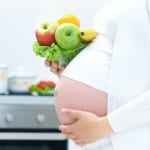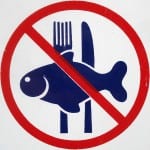Three Simple Food Rules Every Pregnant Woman Should Know
 Expectant mothers are often bewildered by the myriad of nutritional advice shoved at them from all corners. Although most of the advice given is harmless, we think there is a risk of information overload and a tendency to just simply continue eating as usual. But, by simply following a few simple tips, most women can rest assured they are providing their developing child optimal nutrition. Here are three non-negotiable rules we give to our pregnant patients. (note: these do not necessarily apply to women expecting multiples or women with unique health issues.)
Expectant mothers are often bewildered by the myriad of nutritional advice shoved at them from all corners. Although most of the advice given is harmless, we think there is a risk of information overload and a tendency to just simply continue eating as usual. But, by simply following a few simple tips, most women can rest assured they are providing their developing child optimal nutrition. Here are three non-negotiable rules we give to our pregnant patients. (note: these do not necessarily apply to women expecting multiples or women with unique health issues.)

1. You DO need to eat “more”, but “more” usually means more better food, not more total food.
If you are at or near your ideal weight, you do not need to eat any additional calories during the first trimester and only about 300 and 450 additional calories during the second and third trimesters respectively. If you are overweight or underweight or are carrying multiples, we can work with you to determine your unique calorie requirements.
2. Get more protein, but avoid some sources of protein.
Virtually all expectant mothers need more protein in their diets, but steer clear of:
- Uncooked or undercooked meat, poultry, and seafood
- Soft and/or Mexican cheeses (e.g., queso blanco, Brie and Camembert)
- Pâté and other organ meats

Most fish sold at restaurants and in grocery stores contains traces of methylmercury, a compound harmful to the baby’s growing brain and nervous system. Therefore, we advise our patients to just avoid all seafood during their pregnancies, unless they are absolutely sure of the source’s safety. The FDA, however, is more liberal in their advice suggesting instead that mothers simply limit their intake to less than 12 ounces weekly.
3. Eliminate caffeine. we’re not kidding.
This can be a tough one, we know as we are all coffee addicts! However, several studies have confirmed that women consuming 12-ounces of caffeinated coffee/tea/soda daily were twice as likely to miscarry as women who took in no caffeine. Higher levels of caffeine have been associated with low-birth-weight (which itself is linked to a host of problems) and more seriously, stillbirth. To avoid the dreaded headaches that caffeine withdrawal can elicit, be sure and taper off slowly, consuming less and less daily over a week’s time until you are completely off of it.
In our Evansville based chiropractic practice, we work with many pregnant women to help them realize a more comfortable pregnancy and easier, less painful delivery as well as reduce the risks of delivery complications. However, all pregnant women can increase their chances of an ideal pregnancy and a healthy baby by following these three simple rules.







